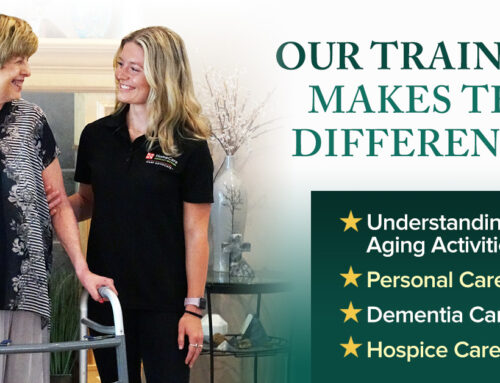7 Ways to Help Your Seniors Remain Independent
7 Ways to Help Your Seniors Remain Independent
Independence is Important
Your mom didn’t tell you about a nasty fall.
Your dad won’t give up his car keys.
Both parents shut down when you try to start a conversation about long-term living options.
“It’s something we see a lot – seniors resisting any kind of assistance, because they view it as a threat to their independence,” said Sierra Goetz, co-founder and operations manager at the HomeCare Advocacy Network (HCAN). “For decades, they’ve been able to do things for themselves and other family members – working, running errands, babysitting, managing money, etc. It’s hard for them to admit they now need help with day-to-day activities, and they don’t want to be a burden to family and friends.
Things to Encourage Independence
Here are some things you can do to help your aging loved ones maintain their dignity and independence.
Make their home senior friendly.
Each year, one in every four people over the age of 65 will fall. Taking a few simple safety measures – removing clutter, securing rugs, installing grab bars in bathrooms, repairing uneven flooring, installing handrails along both sides of stairways, making sure there’s adequate lighting and encouraging them to use of a cane or walker – will significantly reduce the risk of falling.
Support their social life.
Help aging loved ones continue their regular activities, like attending church, visiting relatives and reconnecting with old friends or groups they used to be involved in.
Tap into technology.
Encourage them utilize technology that will help them live safely and comfortably – like wearable devices that call for help in the event of an emergency or smart tools that lock doors, control heating and cooling and adjust lights with the touch of a button. Other technologies, such as video chatting and social media, give your aging loved ones the ability to stay in touch with friends and family members – even if they live hundreds of miles away.
Encourage regular exercise.
Whether it’s yoga at the senior center or a walk around the block, regular exercise is critical for healthy aging.
Keep the brain busy.
Exercising the brain is just as important as exercising the body. To boost brain health, encourage your seniors to play cards or board games, complete sudoku or crosswords, work on jigsaw puzzles or tackle other mind games.
Involve them in decision-making.
From health matters to living arrangements, allow your loved ones to have input in decisions that will affect their lives. While it may not be possible for them to maintain the level of control they once had, even making small decisions will empower them.
Hire a professional caregiver.
An in-home, professional caregiver can help with light housekeeping, meal preparation, medication management, personal care and other tasks that will allow your aging loved ones to remain in their homes for as long as possible.
“Many times, seniors just need a little extra help in order to live safely and independently,” Goetz said. “From companionship to personal and dementia care, we work closely with families to develop customized care plans to meet each client’s unique needs and give families much needed peace of mind.”
To learn how HCAN can help your senior loved ones maintain their independence, visit hcanthrive.com or call your local HCAN-supported office.






